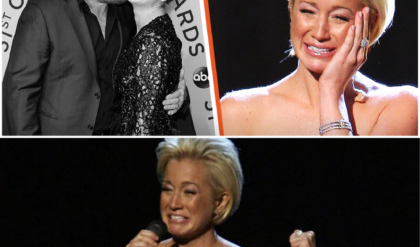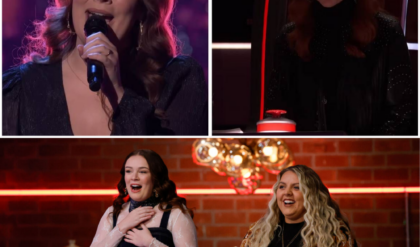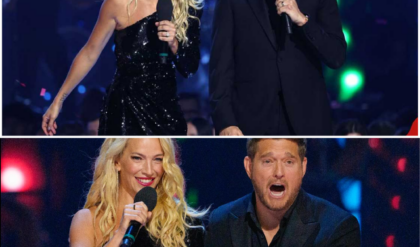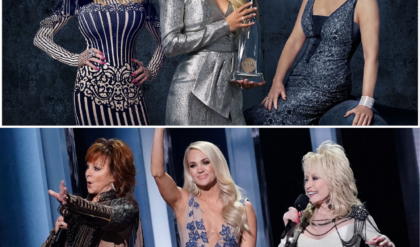The West End’s latest revival of Andrew Lloyd Webber and Tim Rice’s Evita has turned into a theatrical storm, with Rachel Zegler at its epicenter. Since previews began on June 14, 2025, at the London Palladium, the 24-year-old actress’s performance as Eva Perón has sparked a firestorm of controversy, threatening to derail her promising career in a single, polarizing moment. The decision to have Zegler sing “Don’t Cry for Me Argentina” from the Palladium’s exterior balcony—free for street crowds while paying audiences watch a livestream—has ignited outrage, compounded by reports of rehearsal tensions and her divisive public image. Is this the moment that ends Zegler’s rise, or can she weather the backlash? This article delves into the incident, the context behind the chaos, and the uncertain future of her career.
The Moment That Sparked the Backlash
The controversy erupted during the first preview on June 14, when Zegler, adorned in a blonde wig and white gown, stepped onto the Palladium’s balcony to perform “Don’t Cry for Me Argentina” for hundreds of onlookers on Argyll Street. Directed by Jamie Lloyd, the scene is streamed live to the 2,286-seat auditorium, where ticketholders—paying up to £250 ($336)—watch on screens instead of experiencing it live. Intended as a thematic nod to Eva Perón’s connection with the Argentine masses, the move has backfired spectacularly. Videos of Zegler’s nightly 9 p.m. serenade, drawing 600 to 1,000 people, have gone viral, amassing millions of views, but the praise from street audiences has been drowned out by fury from those inside.
Paying theatergoers have flooded social media with complaints, with posts lamenting the “betrayal” of spending hundreds for a diluted experience. One user wrote, “I paid £350 for two tickets to watch a screen while strangers get the real show for free—unacceptable.” The backlash intensified on June 20, when a heatwave led to paramedic calls after fans waiting outside suffered sunstroke and dehydration, with some blaming Zegler’s appearance for creating “dangerous” conditions. This incident, coupled with the perception that she’s prioritizing publicity over her audience, has painted her as the face of the fiasco, threatening her reputation.
The Rehearsal Fallout: A Crumbling Foundation
Behind the scenes, rehearsals have added to the drama. Leaked videos from early June, including one on YouTube dated June 18, show Zegler rehearsing the balcony scene, fueling speculation about its permanence. Initially thought to be a promotional stunt, the decision to make it a nightly feature reportedly caused friction. Sources suggest cast and crew struggled with the logistics—long-armed cameras, outdoor coordination, and last-minute changes—under Lloyd’s demanding direction. Zegler’s transition from film (West Side Story, Snow White) to her first major stage role since high school’s Shrek The Musical has raised doubts about her preparedness, with some insiders questioning her vocal stamina for the demanding role.
Her casting, announced in March 2025, was met with excitement due to her Golden Globe win and personal connection to the musical—singing the song with her father as a child. However, her polarizing persona, shaped by Snow White controversies and pro-Palestine activism, has amplified scrutiny. Reports of security concerns during rehearsals, given her divisive status, hint at a production teetering on edge, with Zegler bearing the brunt of the narrative.
The Career Context: A Star Under Siege
Zegler’s career trajectory has been a rollercoaster. Her breakout role as Maria in Spielberg’s West Side Story (2021) earned her acclaim, but her involvement in Disney’s Snow White remake has been a lightning rod. Comments dismissing the original story as “dated” and her political stances sparked backlash, contributing to the film’s projected $100 million loss after its 2025 release. Her Hunger Games prequel and Shazam! Fury of the Gods roles showed versatility, but the Snow White fallout lingered, making Evita a critical test.
The balcony scene has reignited these tensions. Some see it as a career-killing misstep, with posts on X suggesting Disney has “cut ties” and she’s been “booted” from the role—claims lacking evidence but reflecting sentiment. Others argue it’s Lloyd’s direction, not Zegler’s choice, yet her prominence makes her the target. Her West End debut, intended to cement her stage credentials with a potential 2027 Broadway transfer, now risks becoming a cautionary tale.
The Public and Critical Divide
The reaction is sharply split. Street audiences and fans praise Zegler’s performance, with one post calling it “the best free show in London,” aligning with Lloyd’s mission to democratize theater through 5,000 £25 tickets for under-30s and key workers. The production’s £9 million advance box office, boosted by $200,000 daily, shows commercial strength despite online claims of empty seats debunked by official figures.
Critics, however, are less forgiving. The Guardian highlighted the “us-and-them vibe,” while The Telegraph questioned the staging’s artistic merit, noting paying audiences’ frustration. Reviews praise Zegler’s vocal talent but warn the gimmick overshadows the show’s depth. The heatwave incidents and trigger warnings for loud noises—mocked as “beyond parody” by Toby Young—have added to the ridicule, portraying the production as chaotic.
The Bigger Picture: Theater and Celebrity Under Pressure
This saga reflects broader challenges in theater. High ticket prices exclude many, and Lloyd’s use of livestreaming and street performance addresses this, leveraging social media’s influence—evident in the viral buzz. Yet, it clashes with the live experience’s sanctity, a tension echoed in past experiments like Ivo van Hove’s Opening Night. Zegler’s role in this shift places her at the intersection of tradition and innovation, amplifying the stakes.
Her career mirrors this struggle. After Snow White’s financial flop, Evita was a redemption arc, but the balcony controversy risks overshadowing her talent. Security concerns and health incidents suggest a production stretched thin, with Zegler’s safety and voice health—marked by scheduled absences on July 14 and 28—under scrutiny. The debate over her involvement versus Lloyd’s vision highlights how celebrity can both elevate and endanger a project.
The Ripple Effect: Career at a Crossroads
The fallout is immediate. Box office figures remain robust, and arts donations have spiked, possibly inspired by free access, but the audience divide could hurt long-term perception. Some vow to boycott future Lloyd or Zegler projects, while others see her as a victim of directorial overreach. Talks of Sound of Music in 2027 hang in the balance, with her Evita performance—drawing nightly crowds—both a boon and a burden.
For Lloyd, the experiment enhances his trailblazer status, though its success depends on reconciling inclusivity with exclusivity. Zegler’s career hinges on public forgiveness, a tall order given her history. The White House press secretary role rumors, tied to her Trump critique, remain unverified but add to the noise.
Conclusion: A Career on the Brink
Rachel Zegler’s balcony moment in Evita may have ruined her carefully built career in one fell swoop—or it might be a misunderstood triumph. The decision to sing outside, intended to honor Eva Perón’s legacy, has instead ignited a backlash that threatens to define her as a symbol of theatrical misjudgment. The silence after each performance—cheers from the street, grumbles inside—mirrors her precarious position.
As the run continues to September 6, with press night on July 1, Zegler’s fate rests on how she navigates this storm. Is her career over, as some claim, or can she turn this controversy into a comeback? For now, her voice echoes beyond the Palladium, a testament to her talent but a question mark over her future. In 2025’s theater world, this moment may prove whether she’s a rising star or a fallen one.





